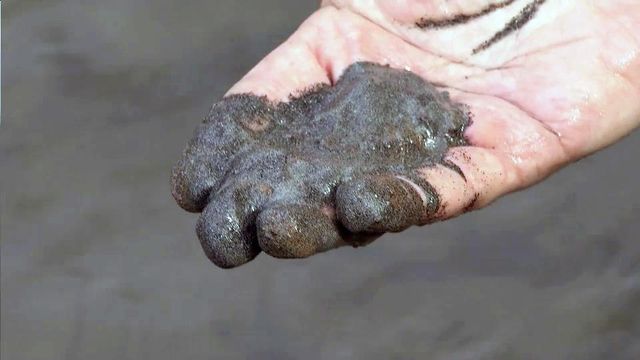House OKs reworked coal ash plan
One day after a new plan surfaced for cleaning up dozens of coal ash ponds across North Carolina, the House approved the proposal Wednesday.
Posted — UpdatedGov. Pat McCrory said, however, that he plans to veto the bill if lawmakers don't change it.
"This bill is a blatant attempt to bypass state regulators and seek more favorable treatment from an unaccountable and unneeded bureaucracy that further delays the cleanup process," McCrory said in a statement.
Environmental groups, Duke Energy and the state have sparred for years over what to do with the waste left when coal is burned for fuel, but cleaning up coal ash ponds became a high priority following a Feb. 2, 2014, spill that spewed tons of toxin-laced coal ash into the Dan River.
Lawmakers moved to force Duke, which owns coal-fired power plants across the state, to clean up more than 30 unlined ash pits, which environmental groups contend have been leaching poison into lakes and ground water for years.
A 2014 law created a state commission to oversee the cleanup process, but McCrory shut it down several weeks ago after the North Carolina Supreme Court ruled lawmakers exercised too much control over it. Since then, the state Department of Environmental Quality has overseen the cleanup.
Senate Bill 71 would reactivate the Coal Ash Management Commission, giving McCrory more control over appointing members, but in shifting oversight back to the commission, it leaves open the possibility that the risk level the state has assigned to each coal ash pond could change, which would change the pace of the cleanup effort and the methods used at each site.
Last week, DEQ rated all existing coal ash ponds as posing either medium or high risks. That means they would have to be dug up and the ash deposited in a lined landfill. DEQ Secretary Donald van der Vaart at the time called on lawmakers to revisit the classifications in 18 months, noting efforts to beef up dams around the impoundments or to provide alternative sources of water to nearby homeowners whose wells have been fouled by leaks from the pits could make some lower risks.
A "low risk" designation would allow Duke to handle those ponds by sealing the ash on site rather than removing it.
"I'm not a scientist. I can't say those classifications are wrong or not," said bill sponsor Rep. Chuck McGrady, R-Henderson. "We made a decision as a body that it was not going to be just one department and its head that was going to make that decision."
McGrady said the cleanup cost – Duke has said ratepayers would have to pick up the estimated $8 billion to $10 billion cost of excavating all of the ash ponds – is a driving force behind the new bill.
"We shouldn't be spending too much money," he said. "We need the lowest-cost but most effective regulation of coal ash that we can get."
The 2014 law provided more flexibility for the cleanup, McGrady said, and that needs to be maintained.
"Don’t fall into the trap that there’s one solution for all of these things," he said.
Rep. Duane Hall, D-Wake, criticized the bill, saying Duke has pushed for ways to delay the cleanup – the law gives the company more time to address lower-risk ash ponds – and lawmakers should instead press forward.
"The public doesn’t want us to create another commission. They want us to take action," he said.
But Rep. Pricey Harrison, D-Guilford, a frequent critic of Duke, said she supports the bill because the oversight it allows "is critical to us doing our job to protect the public health."
The bill also includes a provision that would require Duke to provide permanent water sources to affected homeowners.
Duke officials noted in a statement that they don't believe their ash ponds have created a public health risk, but they will abide by that provision if the bill becomes law. By and large, the company supports the proposal.
"We support this bill because it strengthens North Carolina’s Coal Ash Management Act by providing broad safeguards that protect people, pocketbooks and the environment, as legislators envisioned when they first passed the law," company officials said in a statement.
Rep. Mike Hager, R-Rutherford, who used to work for Duke, said the coal ash problem can't be fixed overnight.
"This is an 80-year issue that Duke has worked their tail end off the last year and a half to fix and get where we are today. Let's give them a little credit for what they've done so far," Hager said.
Related Topics
• Credits
Copyright 2024 by Capitol Broadcasting Company. All rights reserved. This material may not be published, broadcast, rewritten or redistributed.






